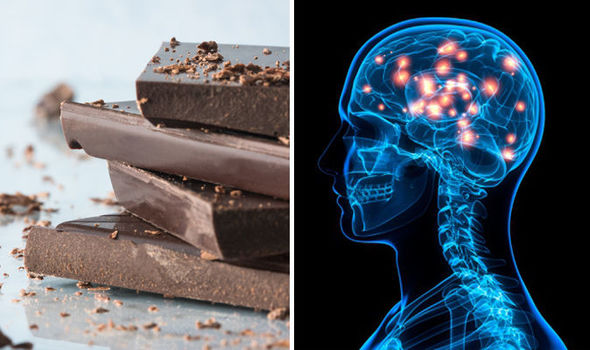Chocolate, a beloved treat enjoyed worldwide, has long been associated with pleasure and indulgence. Beyond its delectable taste, chocolate also has intriguing effects on the brain, influencing mood, cognition, and even health. In this comprehensive article, we delve into the fascinating relationship between chocolate and the brain, exploring the science behind its effects.
The Chemistry of Chocolate
At the heart of chocolate’s allure lies its complex chemistry. Chocolate is made from the cacao bean, which contains several compounds that contribute to its flavor and psychoactive effects. One of the key components is theobromine, a stimulant similar to caffeine but milder in its effects. Theobromine can increase heart rate and dilate blood vessels, leading to improved blood flow and a sense of alertness.
Another important compound is phenylethylamine, often referred to as the “love drug.” This compound is associated with the feeling of being in love and is thought to contribute to chocolate’s reputation as an aphrodisiac. Additionally, chocolate contains small amounts of cannabinoids, similar to those found in cannabis, which may contribute to its mood-enhancing effects.
Mood and Stress Relief
Chocolate is often hailed for its mood-enhancing properties. Consuming chocolate stimulates the production of endorphins, the brain’s feel-good chemicals, which can induce feelings of pleasure and happiness. Moreover, chocolate contains serotonin precursors, which may help regulate mood and alleviate symptoms of depression and anxiety.
Furthermore, chocolate has been found to reduce the levels of cortisol, the stress hormone, in the body. This effect can help mitigate the physiological effects of stress and promote a sense of relaxation and well-being.
Cognitive Benefits
In addition to its mood-boosting effects, chocolate may also have cognitive benefits. Studies suggest that the flavonoids in chocolate, particularly dark chocolate, can improve blood flow to the brain, which may enhance cognitive function. Flavonoids also have antioxidant properties, which can protect the brain from oxidative stress and reduce the risk of neurodegenerative diseases such as Alzheimer’s.
Moreover, chocolate consumption has been linked to improved memory and cognitive performance. The stimulant effects of theobromine and caffeine in chocolate can enhance alertness and concentration, making it a popular choice for a quick cognitive boost.
Health Considerations
While chocolate offers a range of potential benefits, it is essential to consume it in moderation. Chocolate is calorie-dense and can contribute to weight gain if consumed in excess. Additionally, some chocolate products are high in sugar and fat, which can have adverse effects on health if consumed regularly.
Additional Effects of Chocolate on the Brain
Beyond its well-known effects on mood, cognition, and stress relief, chocolate has other fascinating effects on the brain. Here are some additional ways chocolate influences our brain:
- Neuroprotection: Chocolate contains antioxidants, such as flavonoids, that can protect the brain from oxidative stress. Oxidative stress is linked to neurodegenerative diseases, and the antioxidants in chocolate may help reduce the risk of such conditions.
- Brain Plasticity: Some studies suggest that the flavonoids in chocolate can enhance brain plasticity, the brain’s ability to change and adapt. This can be beneficial for learning and memory.
- Mood Regulation: Chocolate consumption has been associated with improved mood regulation, particularly in individuals experiencing stress or anxiety. The compounds in chocolate can affect neurotransmitters involved in mood regulation, such as serotonin.
- Blood Flow: The flavonoids in chocolate can improve blood flow to the brain, which may enhance brain function. Improved blood flow can also help reduce the risk of stroke and other cardiovascular conditions.
- Anti-Inflammatory Effects: Chronic inflammation in the brain is linked to various neurological disorders. The anti-inflammatory properties of chocolate may help reduce inflammation in the brain, potentially lowering the risk of such disorders.
Incorporating Chocolate into a Healthy Diet
While chocolate offers several potential benefits for the brain, it is essential to consume it as part of a balanced diet. Here are some tips for incorporating chocolate into a healthy diet:
- Choose Dark Chocolate: Dark chocolate contains higher levels of flavonoids and lower levels of sugar compared to milk chocolate. Opt for dark chocolate with a cocoa content of at least 70% for maximum benefits.
- Limit Portion Sizes: Chocolate is calorie-dense, so it’s crucial to enjoy it in moderation. Stick to recommended portion sizes to avoid consuming excess calories.
- Pair with Healthy Foods: Pair chocolate with foods that are rich in nutrients, such as fruits, nuts, or whole grains, to create a balanced snack or dessert.
- Avoid Excessive Sugar: Some chocolate products are high in sugar, which can negate the benefits of chocolate. Choose chocolate with minimal added sugar or sweeten it with natural sweeteners like honey or maple syrup.
- Enjoy Mindfully: Take the time to savor and enjoy chocolate mindfully, focusing on the flavors and textures. This can enhance the overall experience and satisfaction.
Conclusion
Chocolate’s effects on the brain are diverse and intriguing, ranging from mood enhancement to cognitive benefits. By understanding the science behind chocolate’s effects, we can make informed choices about incorporating this delightful treat into our diet. Whether enjoyed for its taste or its potential health benefits, chocolate continues to captivate and delight chocolate lovers around the world.



